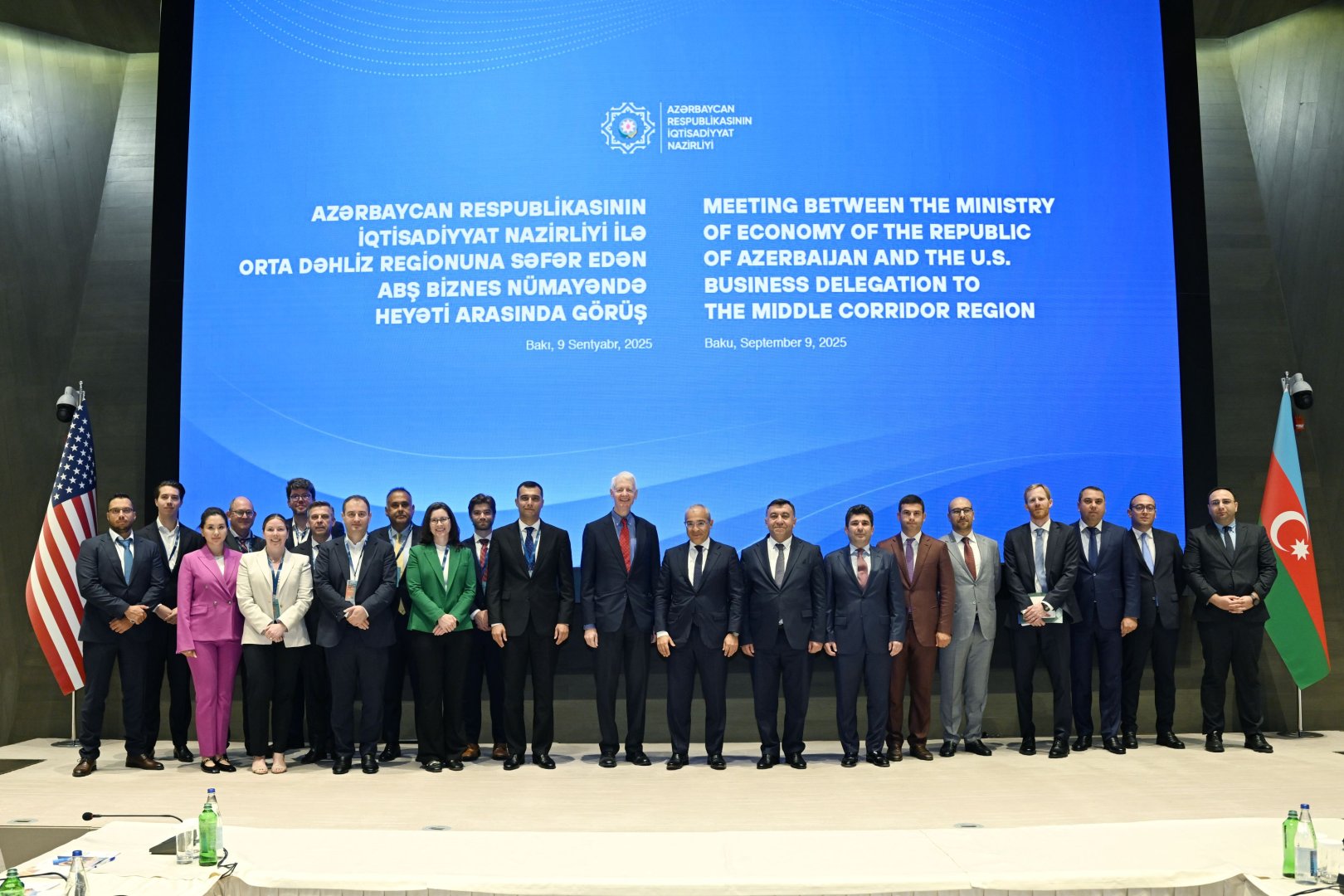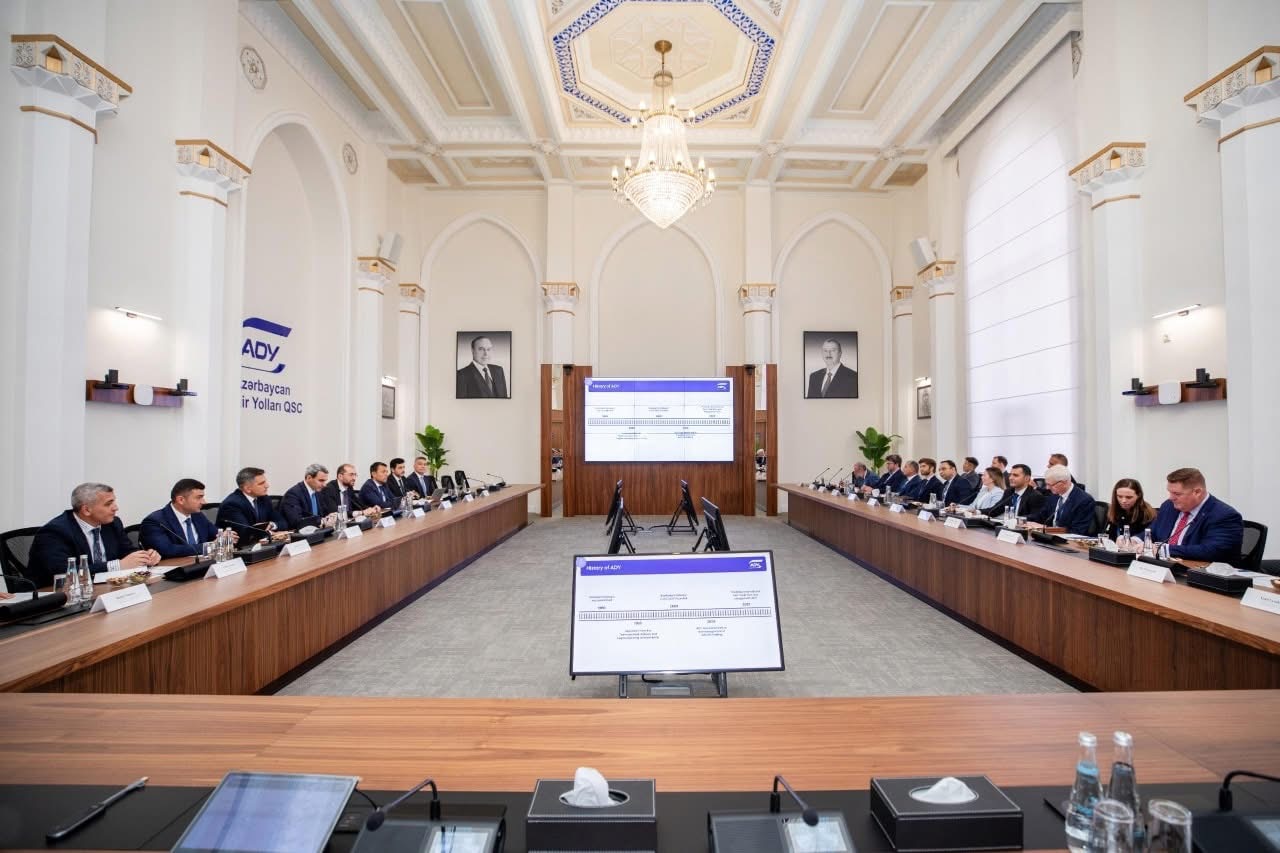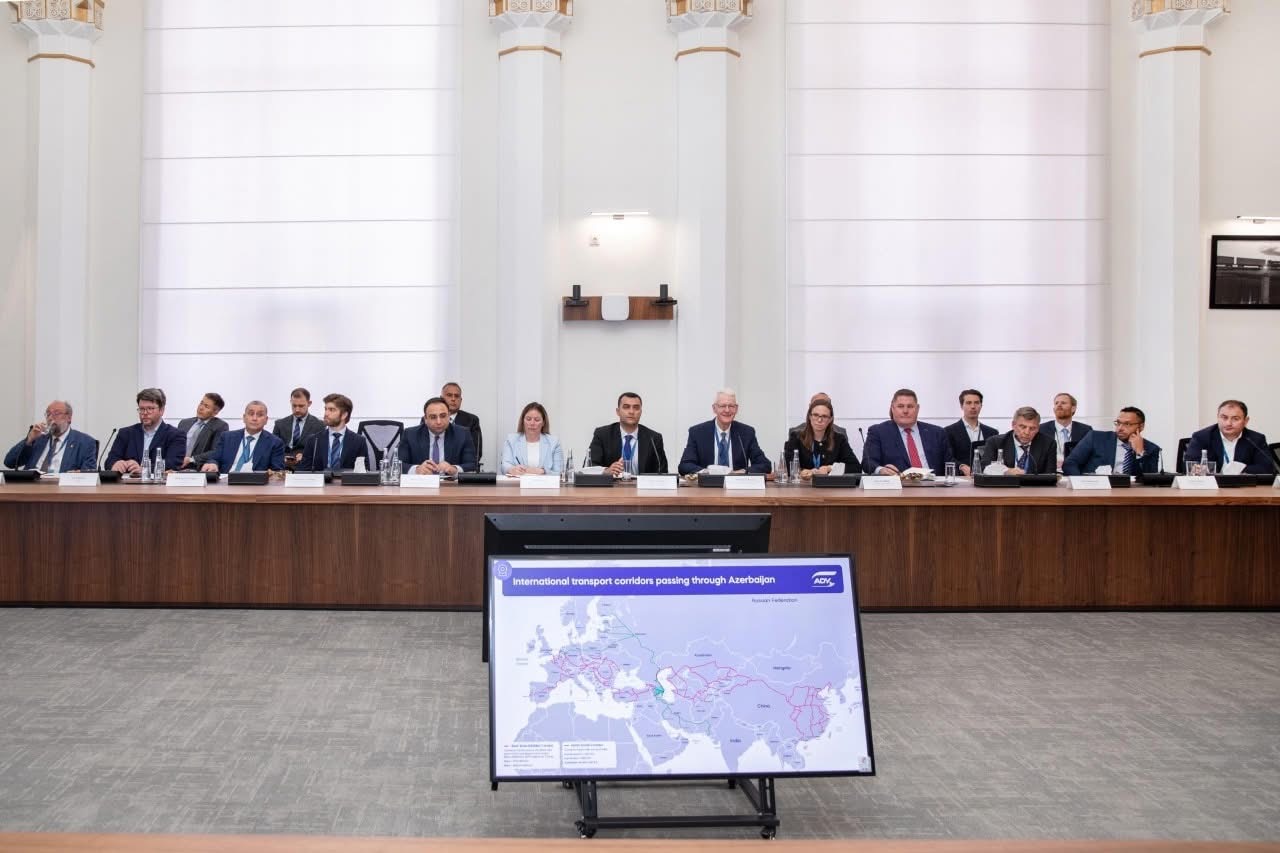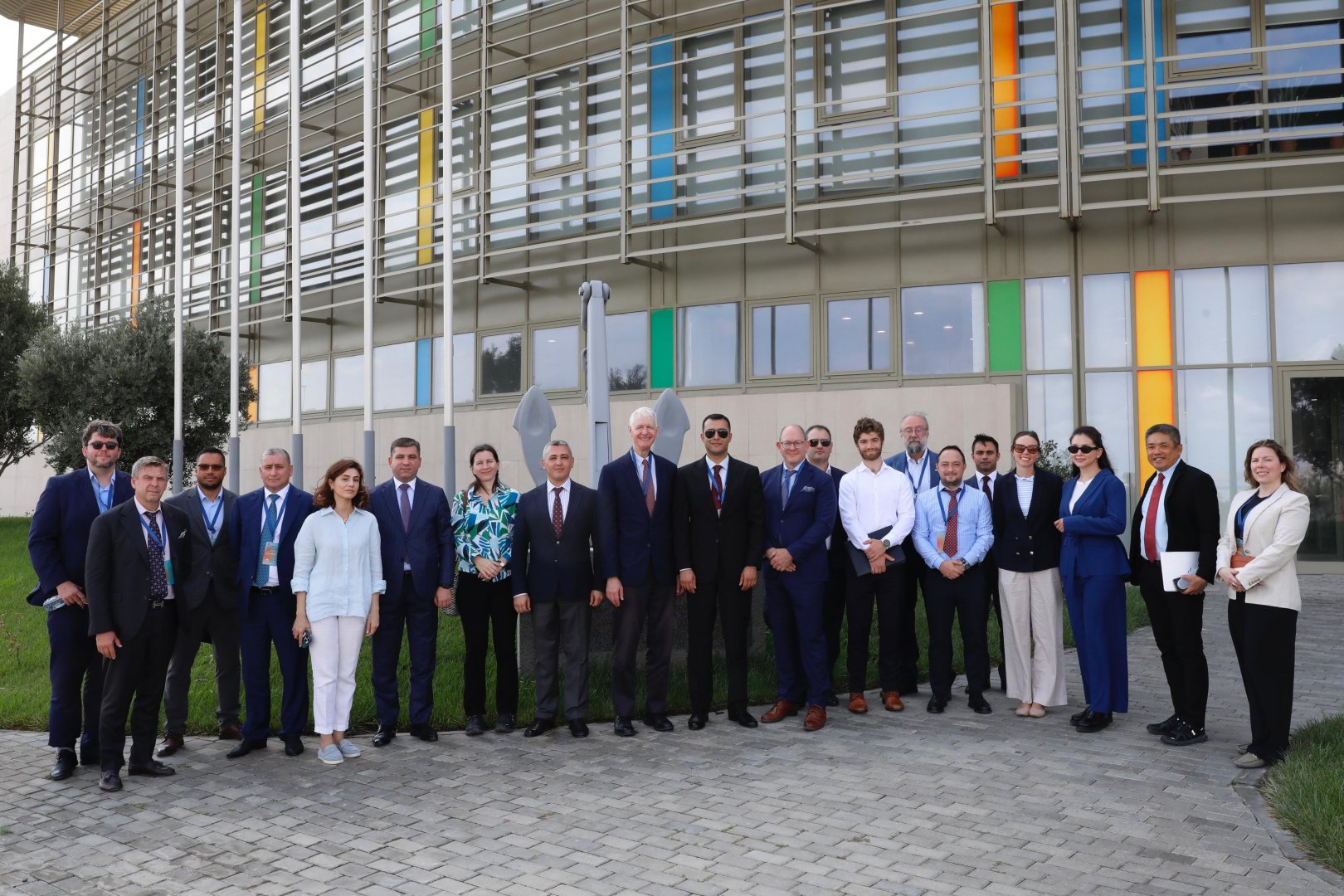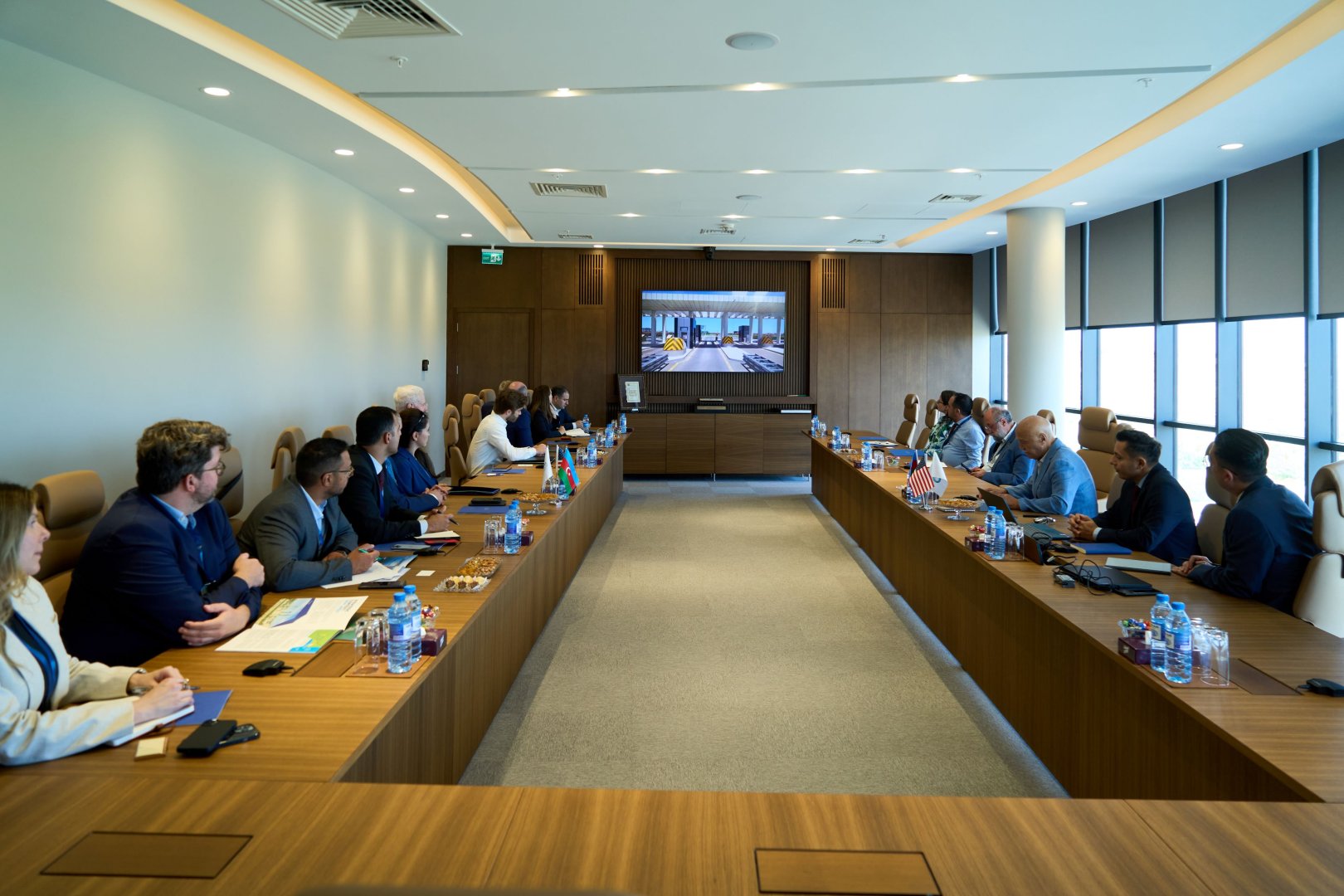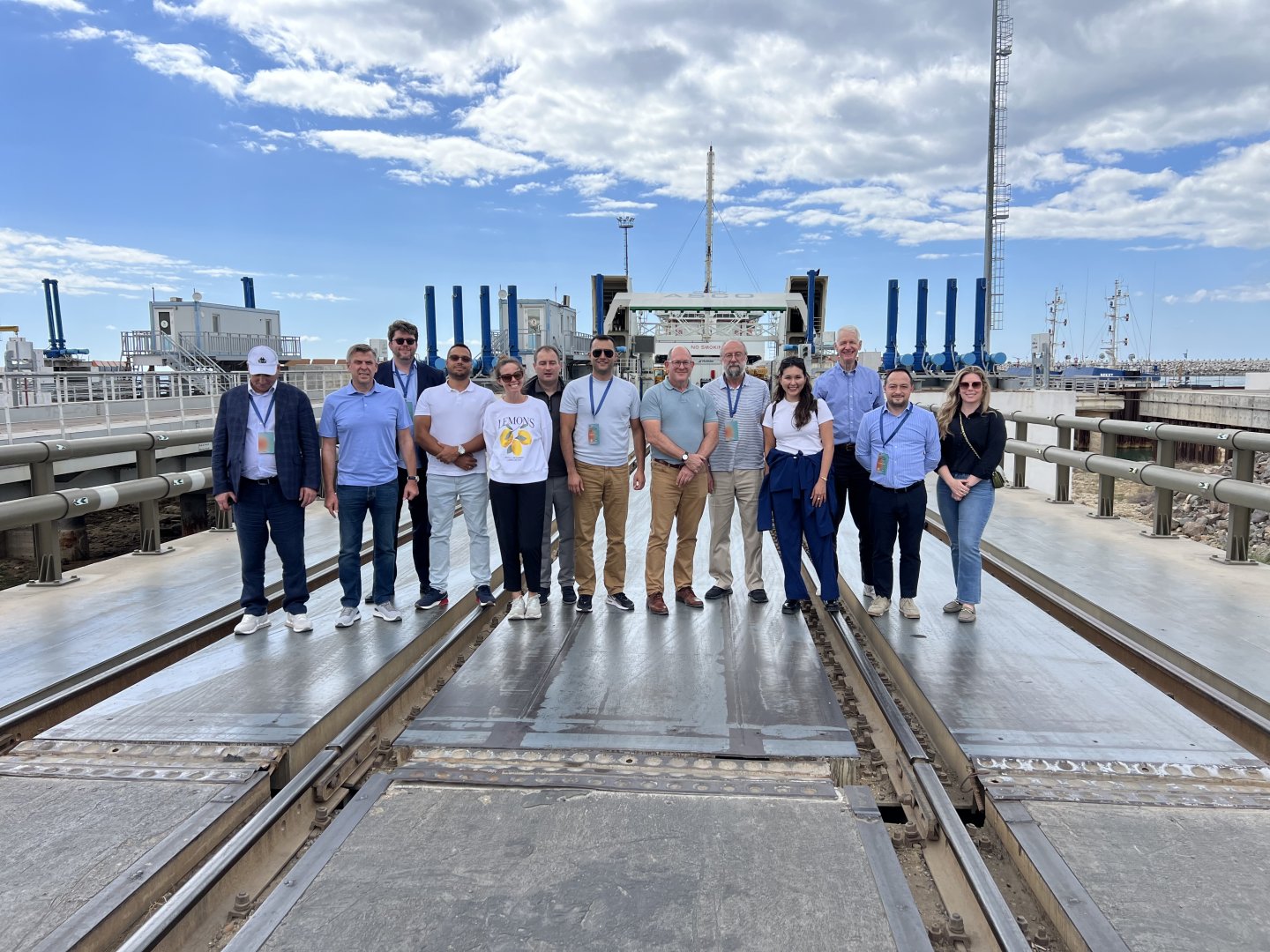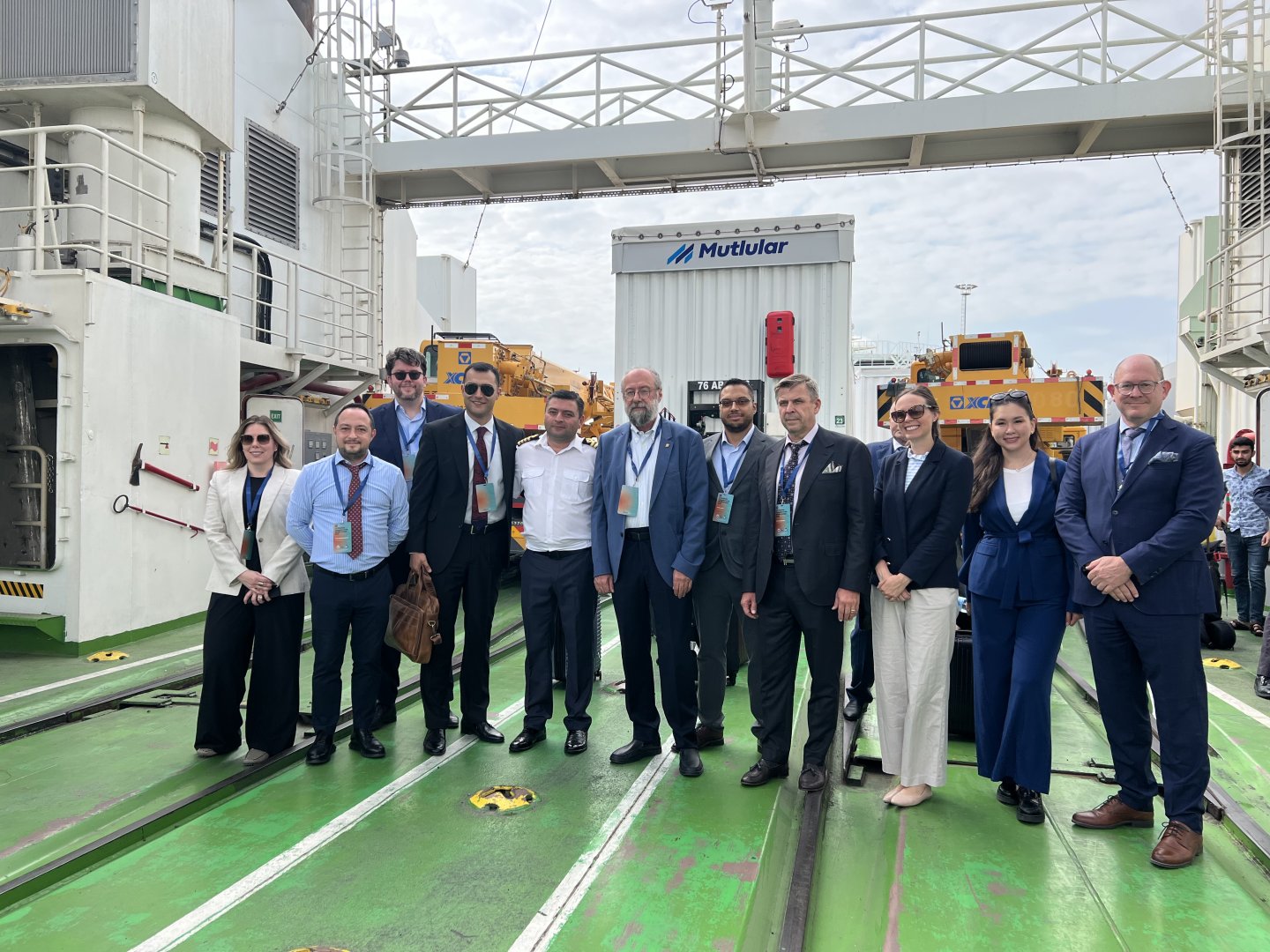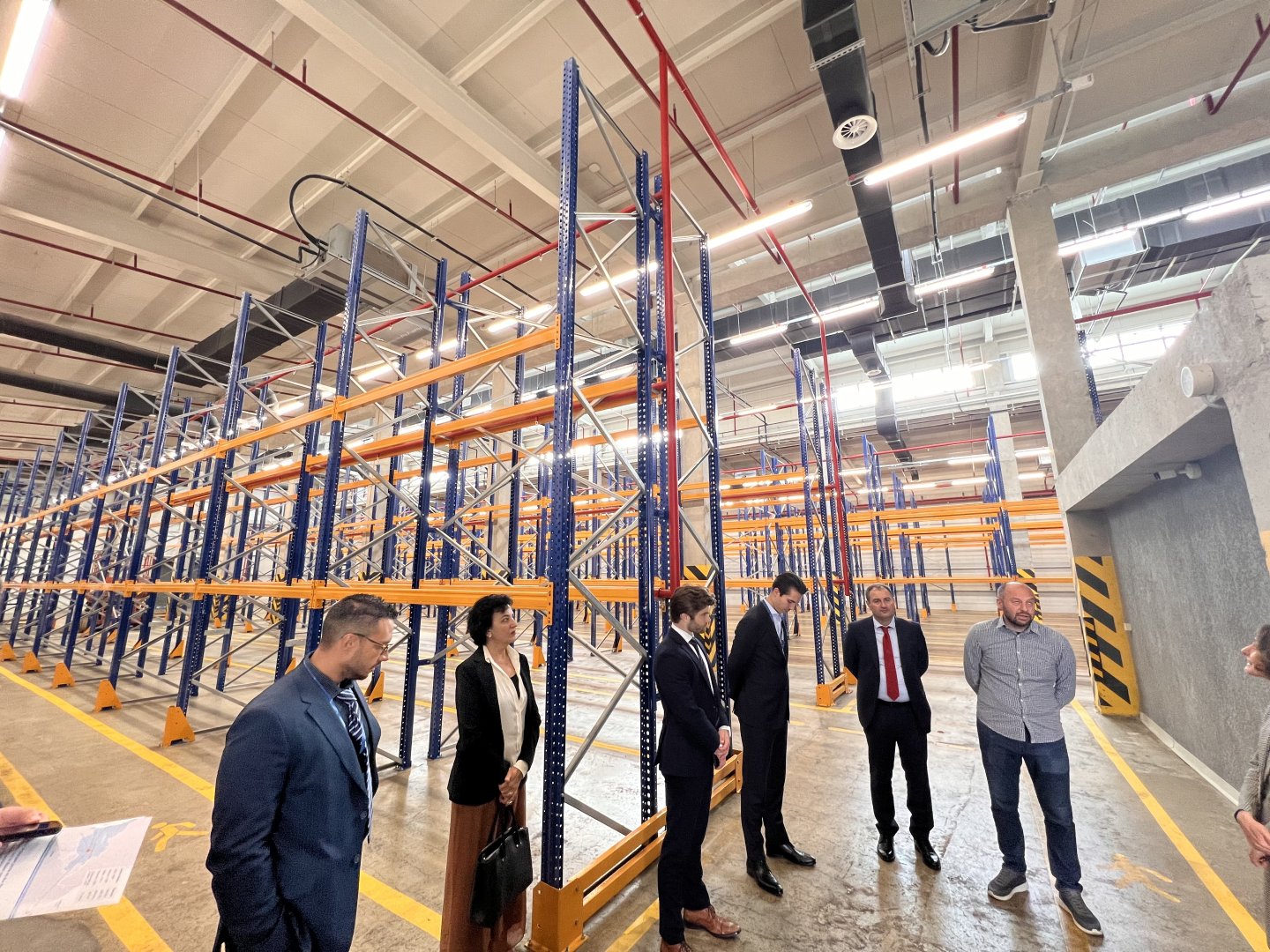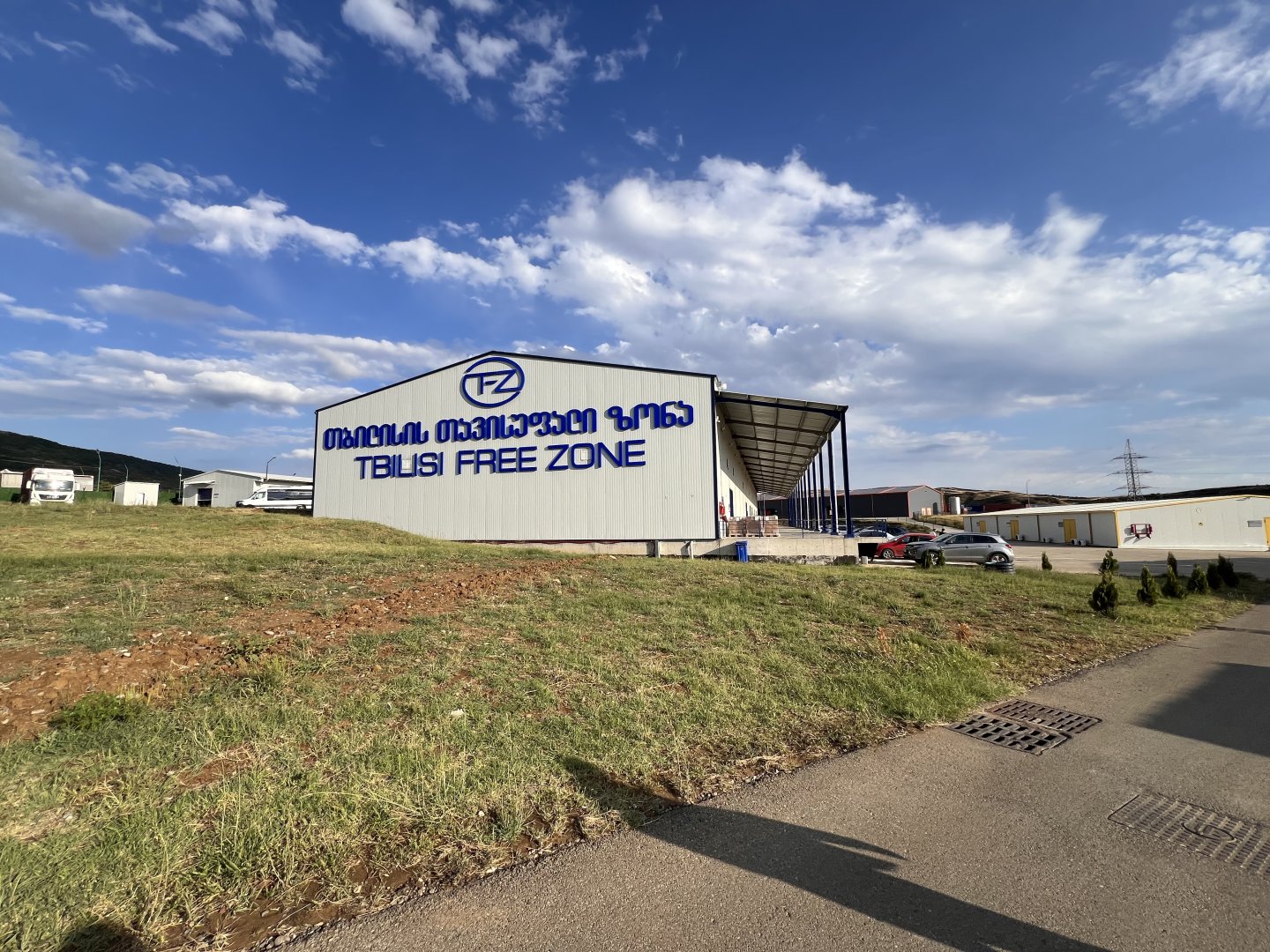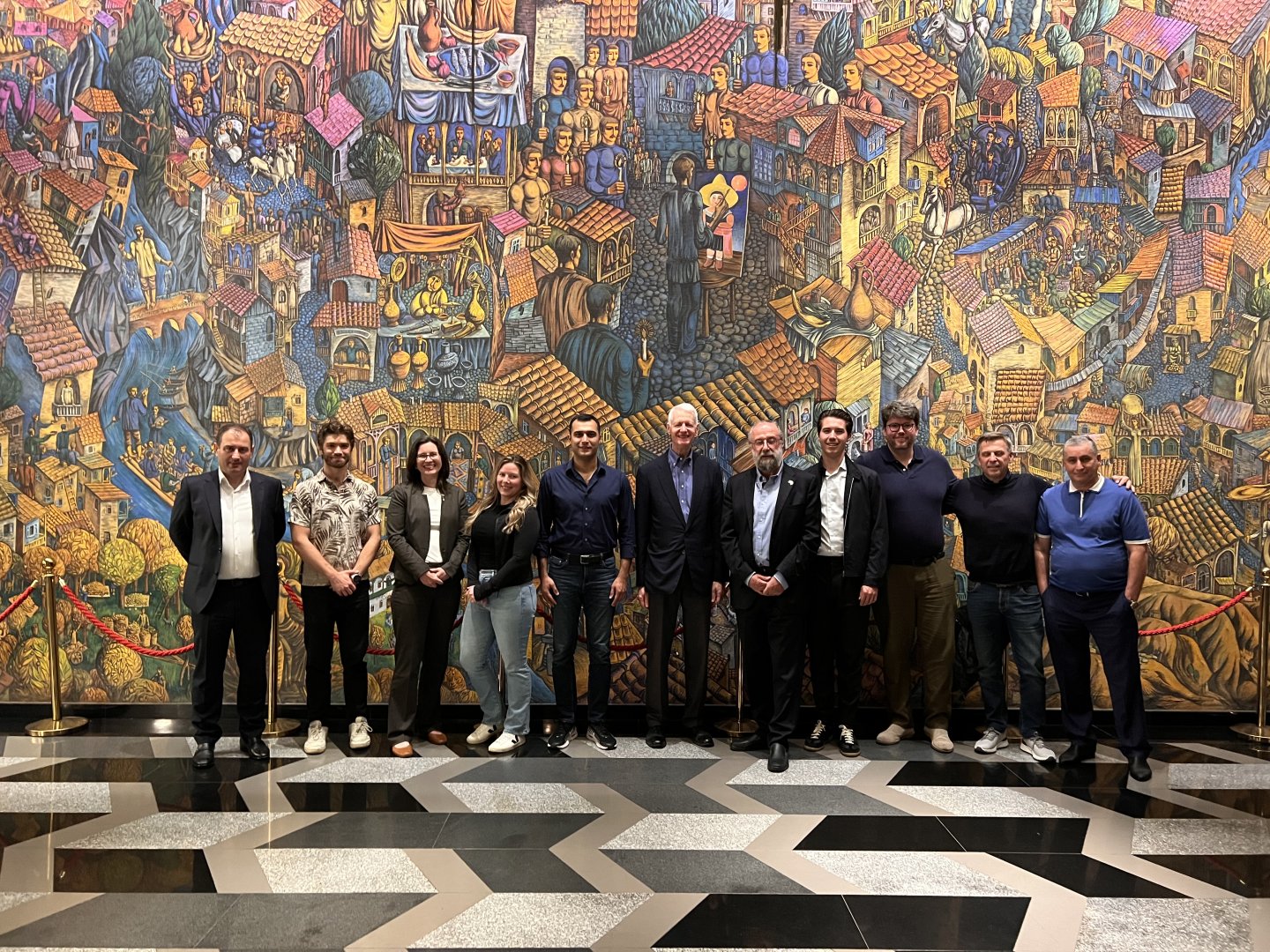BAKU, Azerbaijan, September 19. The U.S. Business Delegation to the Middle Corridor Region, spanning Azerbaijan, Georgia, and Kazakhstan, has successfully concluded its mission, Trend reports via the United States-Azerbaijan Chamber of Commerce (USACC).
The delegation was co-organized by the USACC, the America-Georgia Business Council, and the American Chamber of Commerce in Kazakhstan, bringing together leading U.S. public and private sector representatives.
Certified by the U.S. Commercial Service, U.S. Department of Commerce, the mission included participation from U.S. Government agencies and companies such as the U.S. International Development Finance Corporation (DFC), the U.S. Trade and Development Agency (USTDA), Amrus Logistics, Inc., GKG Law, P.C., KazStroiTechnic, PIMK Rail Holding JSC, Quadro Logistics LLC, Textron Aviation Inc., Turner Construction, Wabtec Corporation, and Wings and Freeman Capital.
“I was honored to welcome the U.S. Business Delegation to the Middle Corridor Region to Azerbaijan, and I was excited by the many economic opportunities I heard about from the delegation members and Azerbaijan’s top economic officials. This mission helped build momentum towards the full implementation of the historic agreements facilitated by President Trump in the White House on August 8.” – Amy Carlon, Charge d'Affaires, a.i., U.S. Embassy Baku.
This landmark mission explored regional opportunities in critical infrastructure, digital technologies, and other fast-growing sectors that open new avenues for U.S. enterprises.
“DFC is committed to working with the private sector to advance our economic partnerships in this vital region. It was a pleasure to engage with senior government and private sector leaders to discuss new opportunities for investments in key sectors including critical infrastructure such as ports, transportation, and logistics,” said DFC Managing Director Kenneth Angell.
The delegation began its Azerbaijan program with a ferry crossing from Aktau, Kazakhstan, to the Port of Baku. The program opened with high-level meetings at the Baku International Sea Port and the Alat Free Economic Zone.
“The Baku International Sea Port and the Alat Free Economic Zone are state-of-the-art facilities that provide streamlined and highly professional services at the very heart of the Middle Corridor. Together, they serve as critical pillars of the Corridor, enabling greater trade and business connectivity,” said Natig Bakhishov, Executive Director of the United States-Azerbaijan Chamber of Commerce.
Over the course of three days, the U.S. delegation held meetings with senior Azerbaijani leaders, including Rashad Nabiyev, Minister of Digital Development and Transport; Mikayil Jabbarov, Minister of Economy; Jeyhun Bayramov, Minister of Foreign Affairs; Rovshan Rustamov, Chairman of Azerbaijan Railways; Shahin Baghirov, Chairman of the State Customs Committee; Valeh Alasgarov, Chairman of the Alat Free Economic Zone; Eldar Salahov, Director General of the Baku International Sea Port; and Vugar Mammadov, Vice President of Silk Way West Airlines.
The mission offered U.S. stakeholders first-hand insights into this strategically significant region. The program featured site visits to critical logistics facilities, high-level engagements with government and industry leaders, a ferry crossing hosted by the Azerbaijan Shipping Company, and overland travel from Azerbaijan to Georgia, demonstrating the growing economic potential of the Middle Corridor.
The Middle Corridor is a transport and trade route that passes through several countries in the region, connecting Asia with Europe. It serves as an alternative to the traditional Northern and Southern corridors.
The route begins in China and goes through Central Asian countries such as Kazakhstan, Uzbekistan, and Turkmenistan. It then crosses the Caspian Sea, Azerbaijan, Georgia, and Türkiye before reaching Europe. The Middle Corridor is a land-based route that bypasses longer maritime paths, linking the eastern parts of Asia, including China, with Europe.

